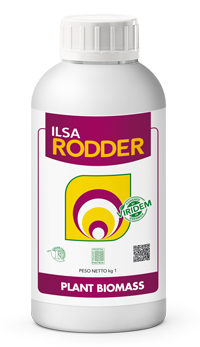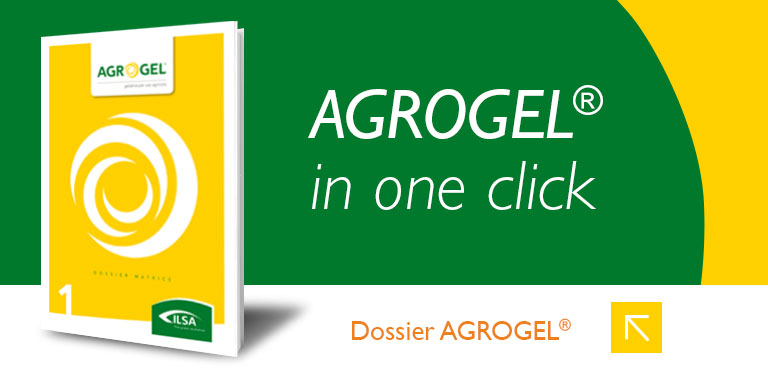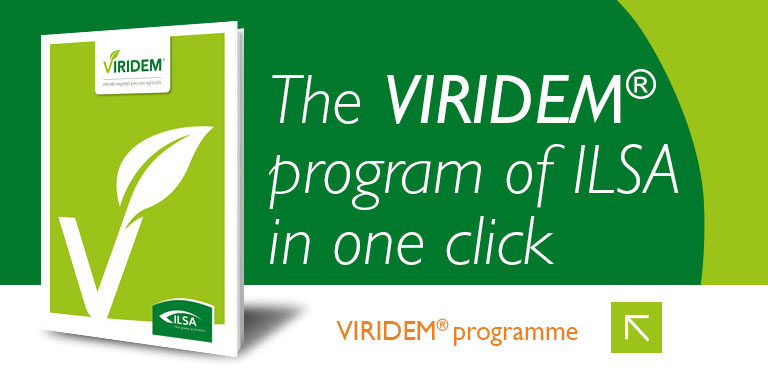STIMULATES ROOTING AND
PLANT BIOMASS GROWTH
ACTS ALSO ON: ROOTING
In plants all activities are regulated by typical plant hormones that combine, regulate specific andcomplex activities and are largely responsible for the plant’s growth speed. They facilitate theaccumulation of natural auxins in the basal region and, therefore, early root production.
ILSARODDER guarantees root development during the early stages of seedlings rooting and vegetative growth. Ithelps maintain roots in good health, preparing the crop to follow through on vegetative development and increaseplant biomass. It has an anti-stress function in post-repotting and in times of drought or excessive heat.
ILSARODDER is the solution to the need of fruit vegetable crops (tomatoes, peppers, melons, courgettes, strawberriesand other crops) and ornamental crops to best use nutritional and water resources in order to develop root systemssuitable to support plants throughout the vegetative/productive cycle.
ILSARODDER is a formulation based on humic substances, highly soluble phosphorus (from ammoniumpolyphosphate), specific amino acids from enzymatic hydrolysis (tyrosine and glutamic acid in particular) andprotein nitrogen, which can help overcome climatic stresses and fosters the development of root hairs and biomass.
Chemical and physical features
- LIQUID BROWN COLOUR
- pH 6,5 ± 0,5
- DENSITY 1,17 ± 0,02 kg/dm3
- CONDUCTIVITY 2,25 ± 0,20 dS/m2
COMPOSITION
-
Total Nitrogen (N) 5 %
- Of which: Organic Nitrogen (N) 2,5 %
- Of which: Ammoniacal Nitrogen (N) 2,5 %
- Total Phosphorus Pentoxide (P2O5) 9 %
- Organic Carbon (C) 7 %
Contains in particular
- HUMIC EXTRACTS
Characterising substances
- HUMIC SUBSTANCES, PHOSPHORUS, TYROSINE, GLUTAMIC ACID, PROTEIN NITROGEN
ACTIONS OF THE CHARACTERISING SUBSTANCES
| ROOT DEVELOPMENT | VEGETATIVE DEVELOPMENT AND ANTI-STRESS FUNCTION | |
|---|---|---|
| HUMIC SUBSTANCES |

|

|
| HIGHLY ASSIMILABLE PHOSPHORUS |

|
|
| AMINO ACIDS FROM ENZYMATIC HYDROLYSIS |

|

|
Doses and methods of use of the fertilizer
-
Greens and Nurseries
-
Lawns1 kg/1500-2000 m22-3 application during root growth
-
Ornamental and Floral Crops100g -100 lt waterFirst vegetative phases
-
Ornamental and Forest Nurseries1 kg/1500-2000 m22-3 application during root growth
-
-
Industrial Crops
-
Oil seed rape2-3 kg/ha2-3 applications, every 8-10 days, during the early stages
-
Sugar beet2-3 kg/ha2-3 applications, every 8-10 days, during the early stages
-
-
Leafy vegetables
-
Artichoke2-2,5 kg/ha2-4 applications every 10-15 days from early vegetative development
-
Arugula2-2,5 kg/ha2-3 applications, every 4-7 days, in the early stages
-
Basil2-2,5 kg/ha2-3 applications, every 4-7 days, in the early stages
-
Beet2-2,5 kg/ha2-3 applications, every 4-7 days, in the early stages
-
Chicory2-2,5 kg/ha2-3 applications, every 4-7 days, in the early stages
-
Chicory2-2,5 kg/ha2-3 applications, every 4-7 days, in the early stages
-
Endive2-2,5 kg/ha2-3 applications, every 4-7 days, in the early stages
-
Lettuce2-2,5 kg/ha2-3 applications, every 4-7 days, in the early stages
-
Parsley2-2,5 kg/ha2-3 applications, every 4-7 days, in the early stages
-
Spinach2-2,5 kg/ha2-3 applications, every 4-7 days, in the early stages
-
-
Legumes and potatoes
-
Potato2,5 - 4 kg/ha2-3 applications, every 8-10 days, during the early stages
-
-
Vegetables
-
Asparagus2-3 kg/ha2-3 applications, every 4-7 days, from early shoot emergence
-
Brussels sprouts2-2,5 kg/ha3-4 applications, every 8-10 days, from post-transplanting
-
Cauliflower2-2,5 kg/ha3-4 applications, every 8-10 days, from post-transplanting
-
Courgette in greenhouse0,3-0,4 kg/1.000 m22-3 applications, every 8-10 days, during the early stages
Covering or underground
-
Eggplant in greenhouse0,3-0,4 kg/1.000 m22-3 applications, every 8-10 days, during the early stages
Covering or underground
-
Fennel2,5 - 3 kg/ha3-4 applications, every 8-10 days, from post-transplanting
-
Melon2,5 - 4 kg/ha2-3 applications, every 8-10 days, during the early stages
-
Melon in greenhouse0,3-0,4 kg/1.000 m22-3 applications, every 8-10 days, during the early stages
Covering or underground
-
Pepper2,5 - 4 kg/ha2-3 applications, every 8-10 days, during the early stages
-
Pepper in greenhouse0,3-04 kg/1.000 m22-3 applications, every 8-10 days, during the early stages
Covering or underground
-
Ready-prepared vegetables1-2 kg/1000 m2Every 6 to 8 days from the first green leaves
-
Savoy Cabbage2-2,5 kg/ha2-3 applications, every 4-7 days, in the early stages
-
Spring Cabbage2-2,5 kg/ha3-4 applications, every 8-10 days, from post-transplanting
-
Tomato2,5 - 4 kg/ha2-3 applications, every 8-10 days, during the early stages
-
Tomato in greenhouse0,3-0,4 kg/1.000 m22-3 applications, every 8-10 days, during the early stages
-
Turnip Tops2-2,5 kg/ha2-3 applications, every 4-7 days, in the early stages
-
The dose indicated in the table has been calculated by taking into account an irrigation volume of about 500-600 litres of water per application. The doses shown should be considered as merely indicative and may vary according to pedoclimatic conditions and average yields expected.





























